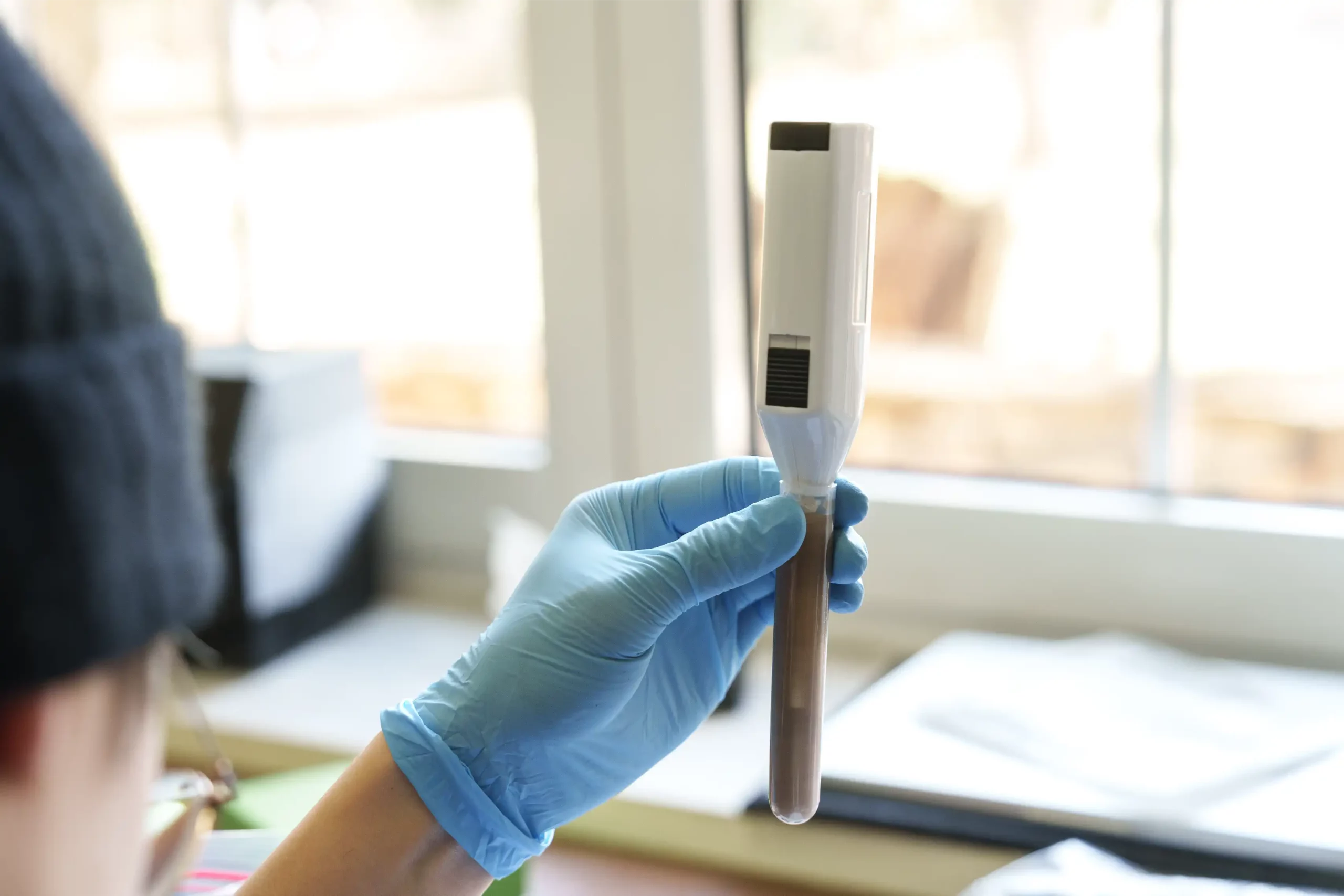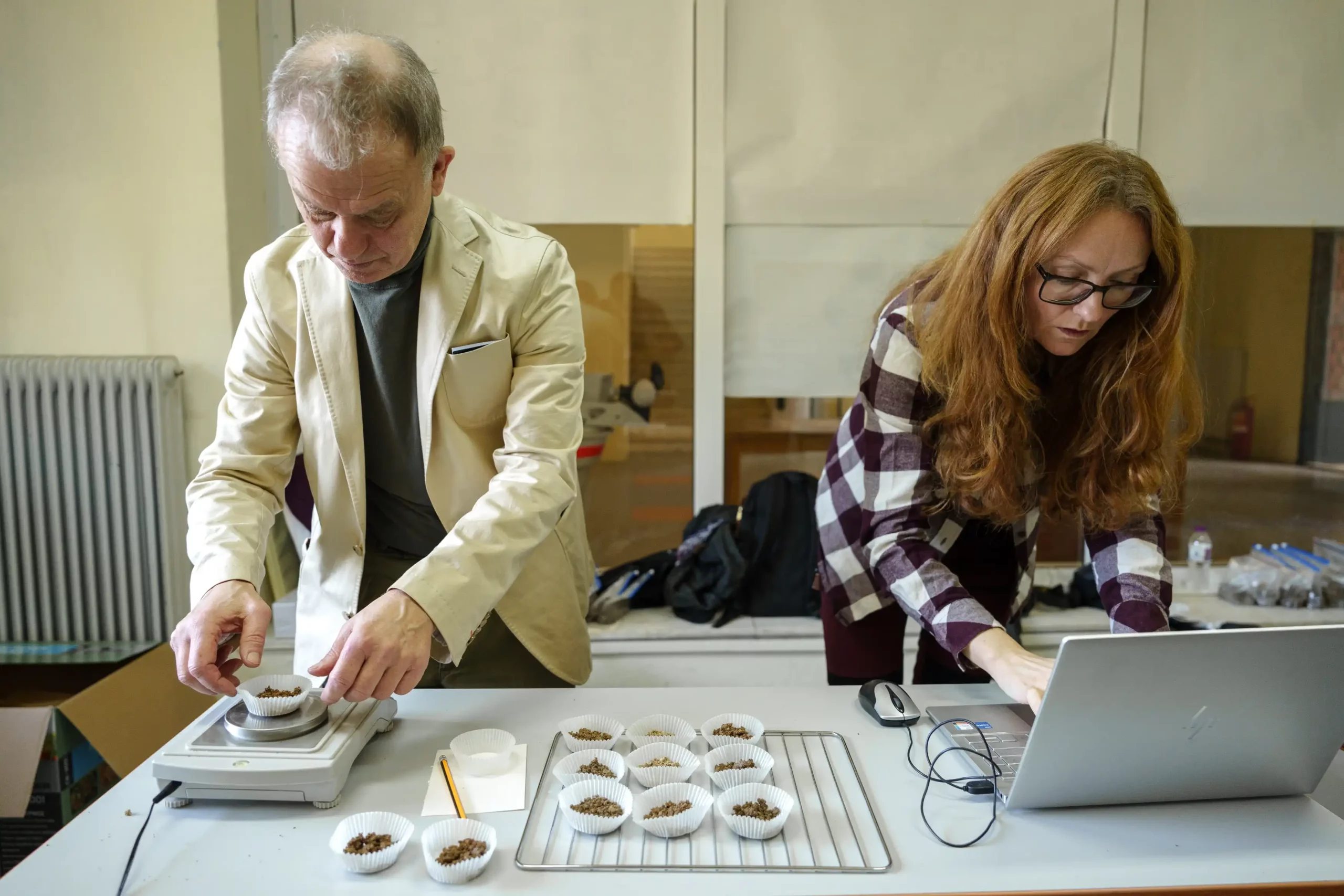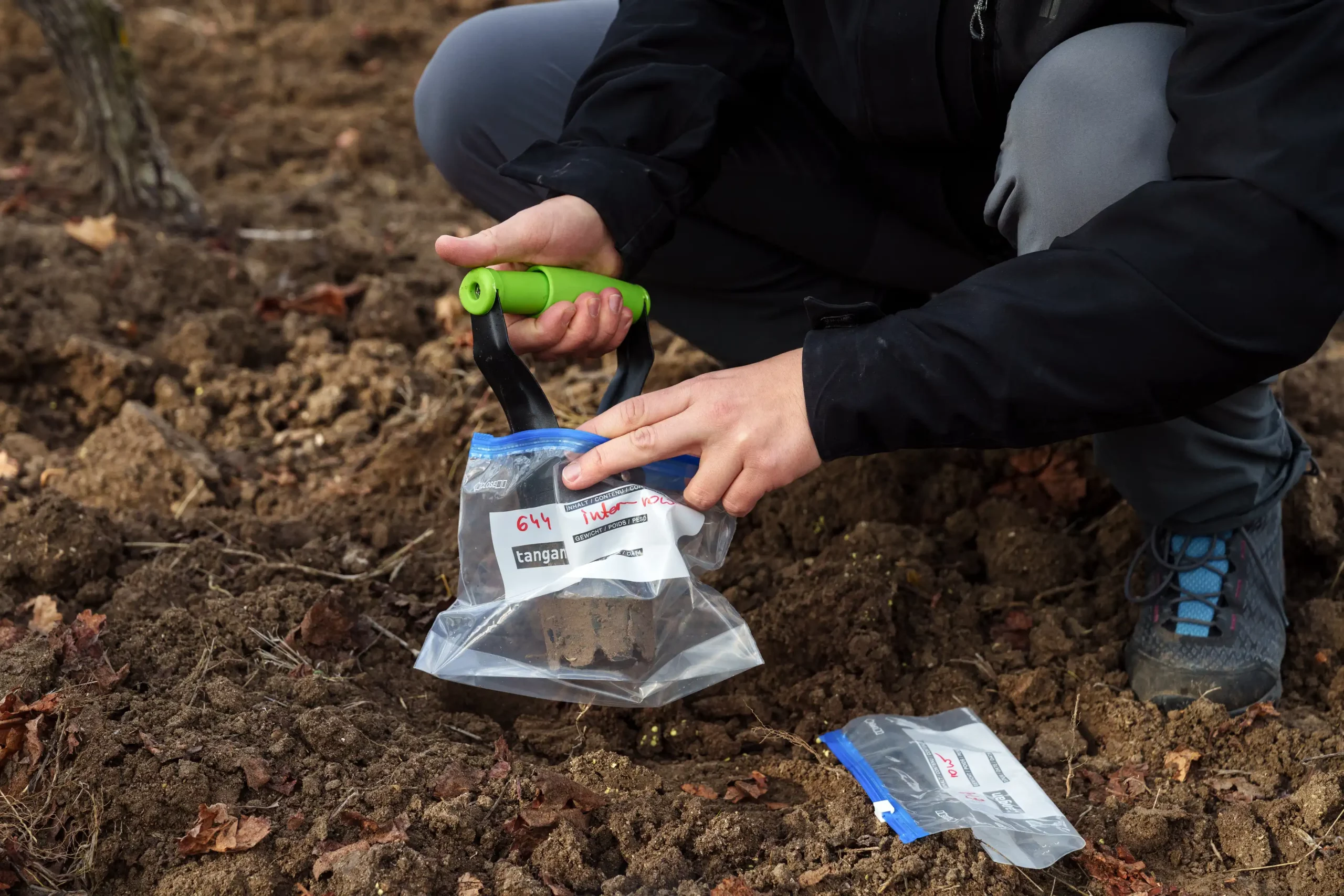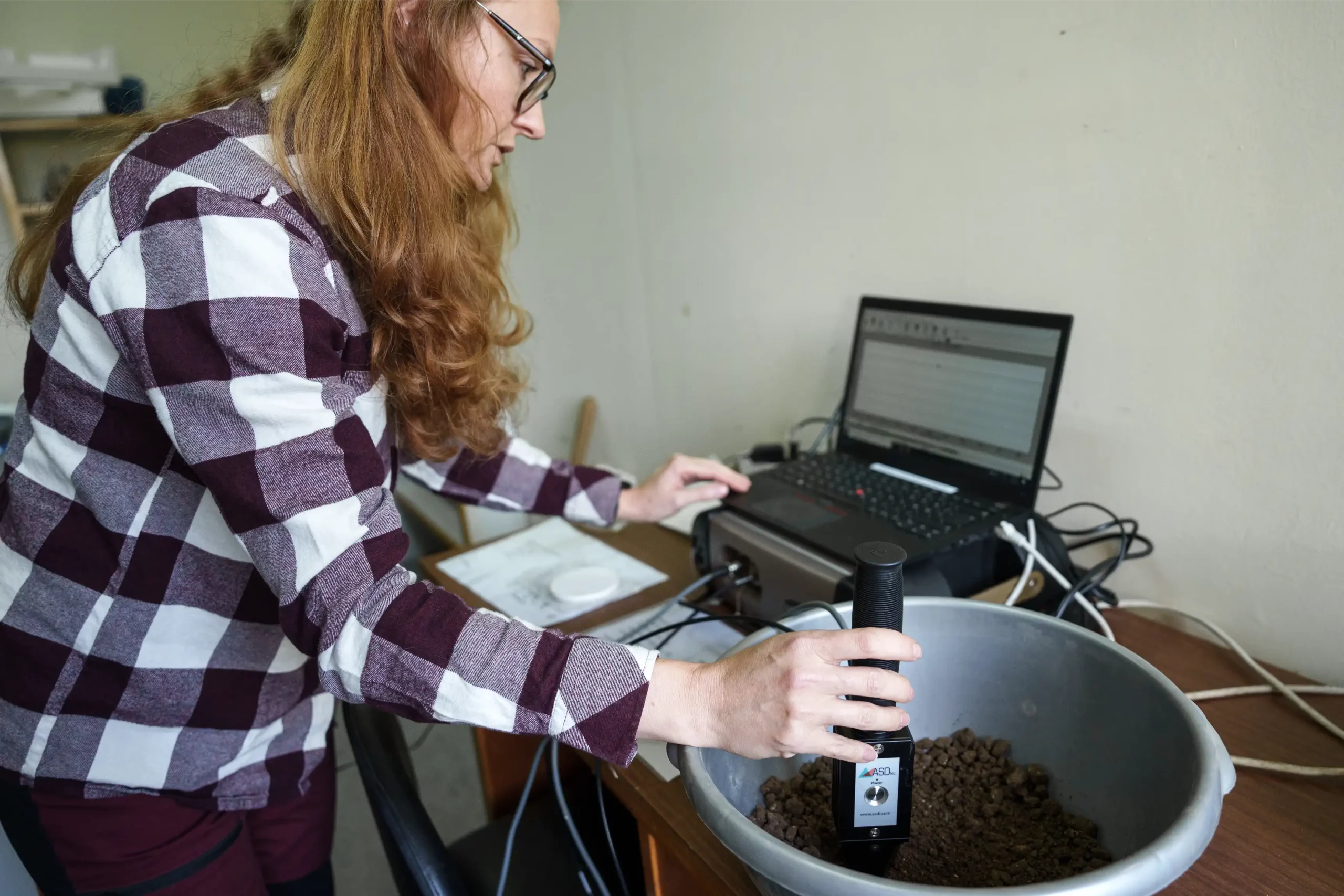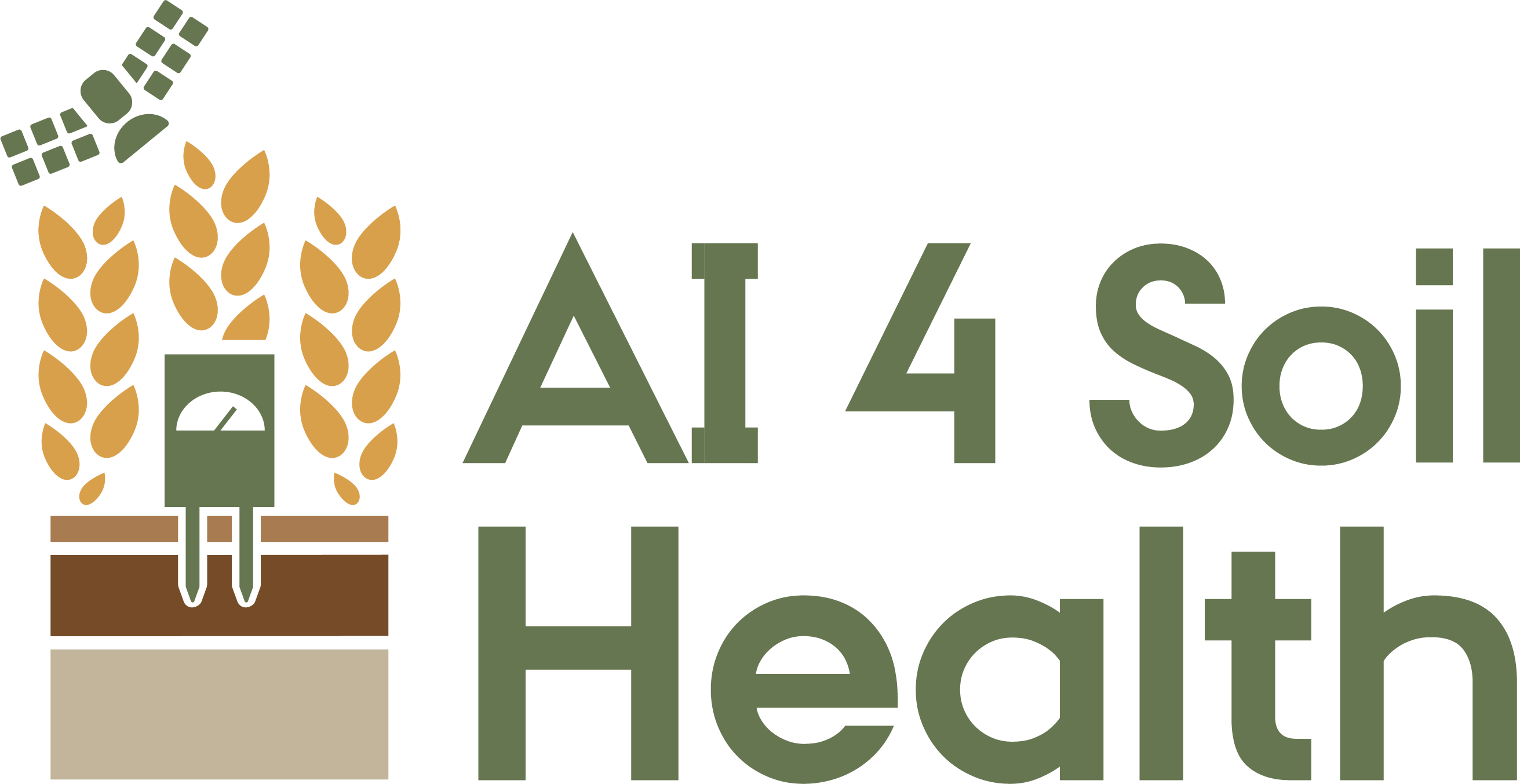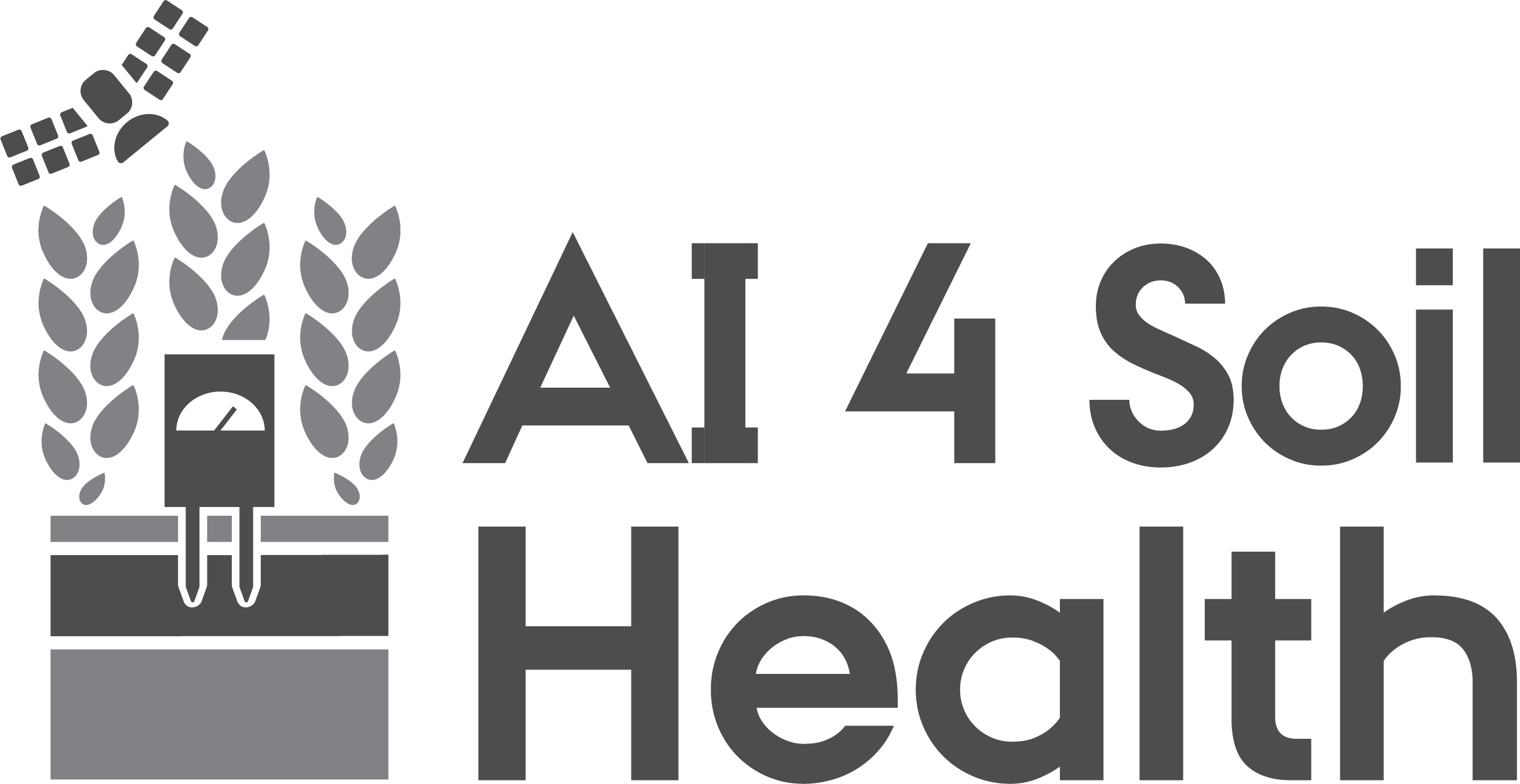Greece
The Greek pilot site is coupling winegrowing with spectroscopy and AI to modernize wine-making.

Overview
Introduction:
The Greek pilot site is operated by The Aristotle University of Thessaloniki (AUTh), and its focus of activity is to assess the impact of land degradation on soil health, farmland productivity, and soil carbon sequestration potential in Central Macedonia. The Region of Central Macedonia is aiming to establish modern, competitive farms based on new international data, aligning with its Regional Innovation Strategy to produce high-quality products that meet consumer demands.
The project aims to support the development of evidence-based conservation recommendations for policies and sustainable services. This initiative is being tested at a modern winery, “Ktima Gerovassiliou”, which spans 70 hectares. The test site was chosen for its ability to evaluate diverse crop management options, considering various crop and soil types. Historic soil data has been preserved and curated over time from previous monitoring activity. “Ktima Gerovassiliou” and AUTh maintain a long-lasting collaboration in demonstrating and adopting mature outcomes of university’s research, mainly focused to the analysis of hyperspectral data through the application of Artificial Intelligence techniques.
Soil health indicators chosen:
The below indicators are identified for vineyards as these factors significantly impact crop performance:
- Soil pH – Maintaining optimal soil pH within a specific range is essential, tailored to the grapevine variety, to ensure proper nutrient availability.
- Texture – Soil texture plays a crucial role in water retention and drainage, vital for vine root health.
- Organic matter content – Maintaining a healthy balance of organic matter benefits microbial activity, enhances soil structure, and promotes nutrient retention and root development.
- Nutrient levels – Regular soil testing to monitor nutrient levels enables adjustments in fertilization practices, ensuring grapevines receive essential nutrients for optimal growth and fruit quality.
Data collected by this pilot site:
The vineyard owner conducts regular soil samplings and analyses them annually, a practice considered integral to the winery’s operations. This initiative supports the production of wine labels exported to over 40 countries, establishing a valuable archive of soil chemical analyses which can be fed into the data cube. In collaboration with Aristotle University of Thessaloniki (AUTh), this archive has been expanded to include spectral measurements taken at the farm scale. Additionally, a meteorological station operates at the vineyard, providing readily available weather data upon request.
Methods used for the evaluation:
Laboratory chemical analyses will be undertaken, supplemented with spectroscopy and Remote Sensing data. This integration enables the upscaling of existing point datasets to digital maps, capturing the in-field variability of monitored indicators.
Gallery
